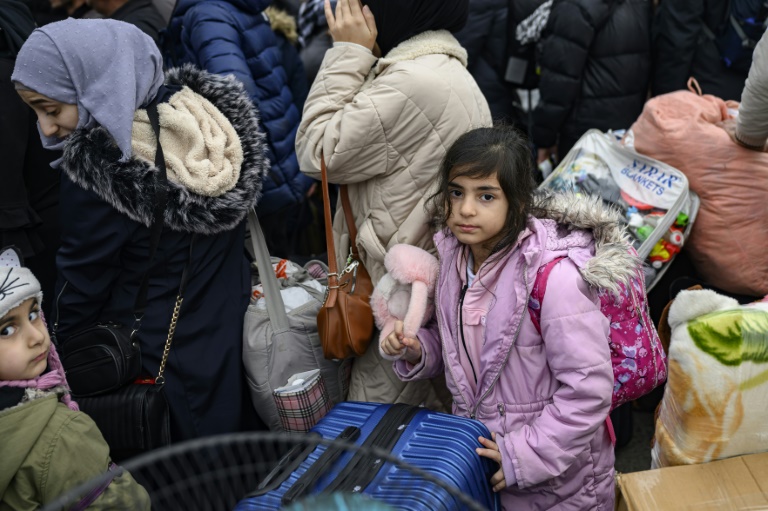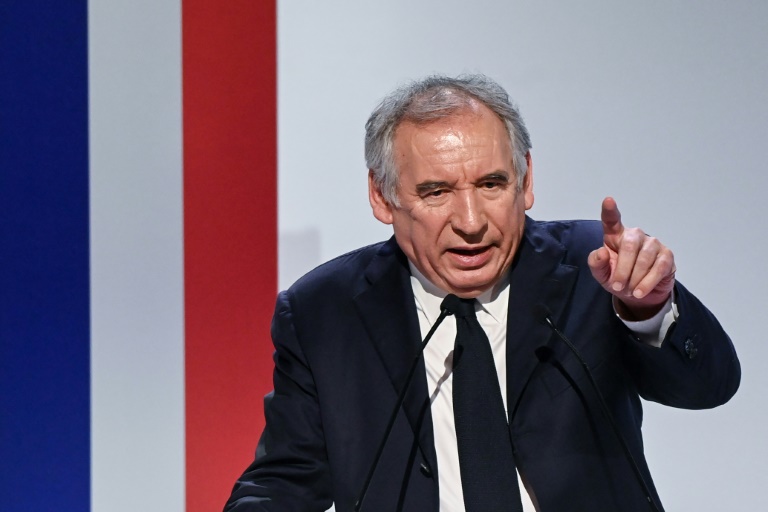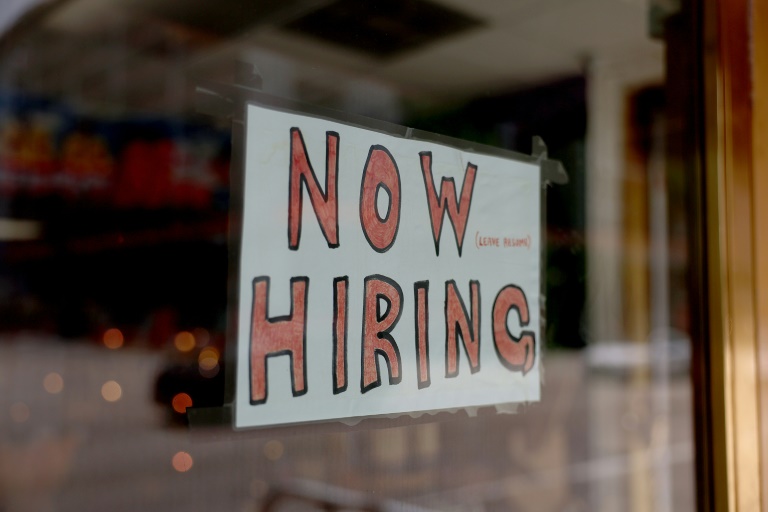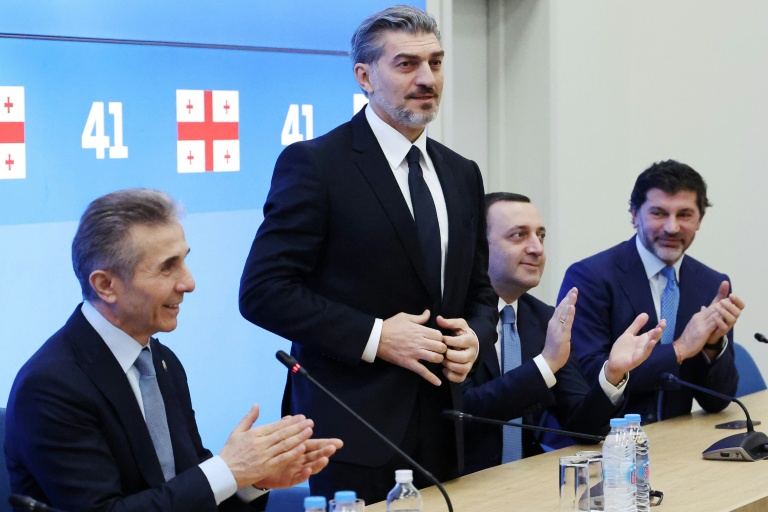Eight-year-old Rayan Assani knows next to nothing about Syria, but in a few minutes, the little girl with long black hair and a Barbie backpack will cross the border and head for her family’s native Aleppo.
“It’s going to be pretty,” she said, speaking Arabic in a barely audible voice, clutching her pink earmuffs in her hand amid the bustle at the Turkish-Syrian border.
There, dozens of children like her were preparing to cross with their parents following the ouster of longtime ruler Bashar al-Assad.
“Our dad told us the war was over and we were going back to Aleppo. That’s all,” said her older sister, Merve, 17.
She admitted she had “cried a lot” on Wednesday as her family took a bus out of Istanbul, where they had fled in 2012, a year into Syria’s brutal 13-year conflict.
It was a grey, cloudy day at the Cilvegozu border crossing, and from where the Assani sisters were standing, nothing of what awaited them in Syria was visible on the horizon.
A little boy in his father’s arms had chocolate smeared around his mouth and a Turkish flag knotted around his neck like a cape.
“That’s to thank Turkey for welcoming us,” said the father as he hurried back to Damascus, the capital and hometown to many of the three million Syrian refugees in Turkey.
In a long line that had been forming since dawn, Mumina Hamid was watching over her twins, wearing a long black coat, a pink scarf on her head.
Husam and Wael, age six, had just been to the barber one last time before leaving Istanbul. They had the same haircut, shaved on the sides, each with a packet of cookies in his Spider-Man backpack.
“Syria is bigger than Istanbul,” Wael said knowingly, adding that he hoped there would be cats at their final destination, the central city of Hama.
What would they miss about Istanbul? “My friends,” he said. “And my teacher,” he added, looking at his mother.
Husam, for his part, left behind a girlfriend. Saying goodbye, “I gave her a kiss on the cheek,” he admitted, after being prompted by his mother.
The Hidir family was travelling to Idlib, 40 minutes by car from the border.
“It will be better than Turkey,” said 12-year-old Leyla — though she seemed unconvinced as she toted a large, well-worn black suitcase toward the border, her black hat pulled down over her ears.
She acknowledged she did not know what Syria would be like. When her family fled, she was six months old.
Her two little sisters, who were wearing pink Crocs despite the winter cold, were born in Turkey.
They were making the trip without their toys and stuffed animals, which were left behind.
“Their father will bring them when he joins us in a few months, God willing,” said their mother, Nada. “For now, he’s staying in Turkey to work.”
Asked what she had brought in her backpack, Leyla timidly answered: “My Turkish book.”
“And a Koran,” added her mother.
Leyla reads only “a little” Arabic, she said. She did not know when she would be able to return to school in Syria.
On her last day of classes in Istanbul on Wednesday, Leyla did not tell her friends she was leaving.
“I didn’t want them to be sad, too,” she said.
AFP
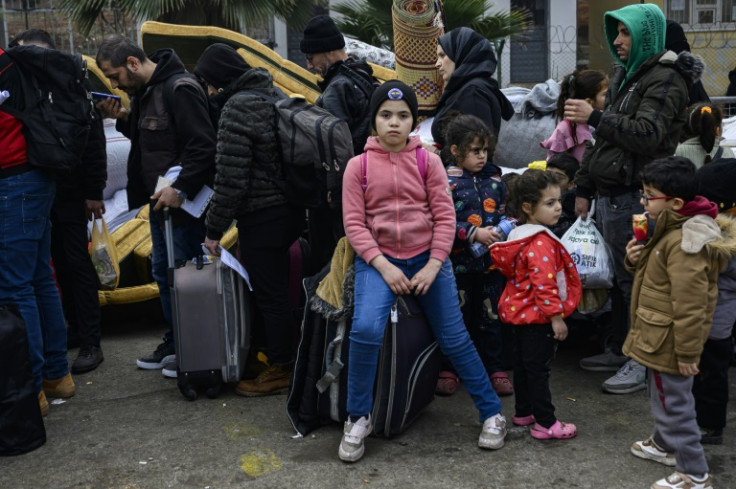
AFP

